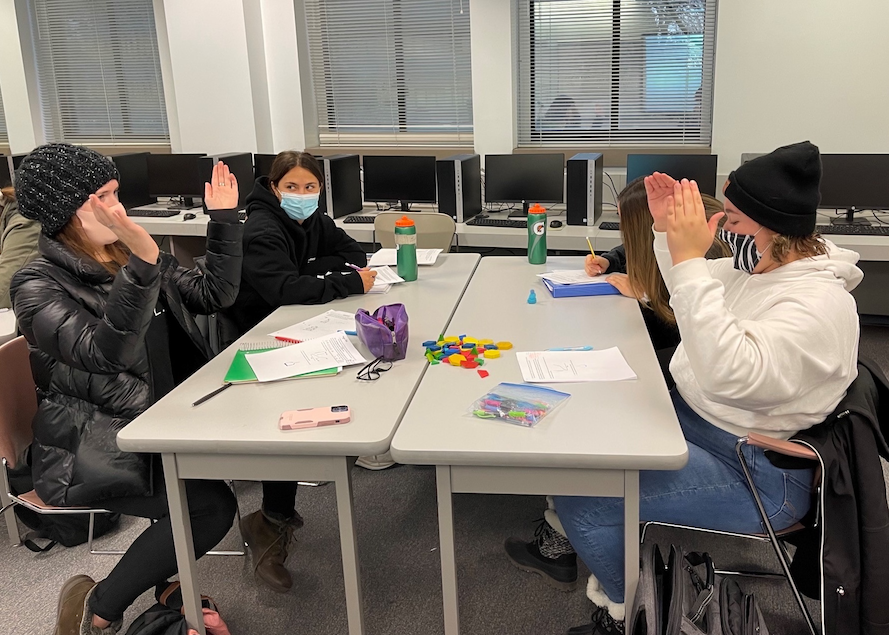Students who graduate from the MELT program will demonstrate the habits of mind that support lifelong learning by being able to:
- Seek information and use inquiry to systematically explore problem situations, collect and analyze evidence, and make informed evaluations.
- Integrate knowledge of mathematics within and across mathematics education courses with an understanding of K-8 students’ mathematical thinking.
- Use qualitative and quantitative reasoning to develop a clear understanding of problems and generate creative problem solutions through original, imaginative, innovative efforts
- Effectively communicate school mathematics and demonstrate mathematics content knowledge, deep reflection, creativity, and critical thinking.
The MELT program aspires to build a community of learners and scholars benefiting from shared experiences both inside and outside the classroom where learning is accepted and nurtured between peers and between students and faculty members.

